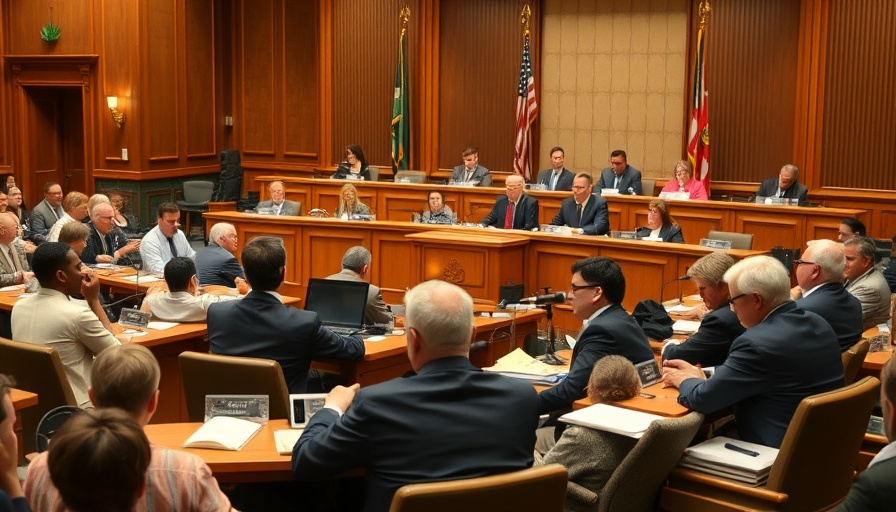
Community Engagement: A Chance for Voices to be Heard
The recent decision by the Revere city council to place a non-binding referendum on the November ballot regarding recreational marijuana sales is a notable step in local governance. As Ward 2 Councillor Ira Novoselsky pointed out, this referendum is not just a formality; it is an opportunity for residents to share their opinions on a significant matter that could shape the community's landscape.
While Massachusetts legalized recreational marijuana in 2016, Revere's previous rejection of the sales has kept it largely off the table. This became a talking point during council meetings earlier in the year, when many citizens expressed their opposition to lifting the prohibition on sales. Novoselsky’s push for a public vote acknowledges that opinions are varied and that a wider array of voices must be included in the discussion.
Past Decisions vs. Current Perspectives
This referendum will allow the citizens of Revere to reassess their collective stance on recreational marijuana. In light of changing social attitudes towards cannabis, it is essential to revisit decisions made in the past. Some council members, like Anthony Cogliandro, advocate for a democratic process to hear from all demographics in the city.
On the other hand, concerns remain among resistant council members, such as Robert Haas III, who stress community opposition and health concerns. Both sides provide a crucial perspective on why public opinion is fundamental in local governance, especially concerning issues that impact community health, safety, and welfare.
The Impact of Voter Turnout
Critics, like Councillor Angela Guarino-Sawaya, worry that the upcoming municipal election might not draw sufficient turnout to accurately reflect community sentiment on this issue. With it being a non-mayoral election year, low participation could skew results. Are we really ready to gauge public sentiment when the voices that matter may not make it to the polls?
This brings up the critical question of how election timing can affect the outcomes of issues that hold importance to public health and municipal policy. Voter engagement initiatives will be vital leading up to the referendum if stakeholders wish to ensure a representative outcome.
Health Considerations and Public Safety
Opposition to recreational marijuana often cites health studies linking increased use to various negative impacts, particularly among adolescents. Councillor Anthony Zambuto expressed concerns about potential health risks, which resonate with many constituents who fear that increased access may lead to heightened use by vulnerable populations.
However, proponents argue that regulated sales could mitigate risks through education and responsible use. Moreover, with data-backed approaches to marijuana use and sales, communities can exercise greater control, ensuring that public safety is prioritized while also fostering a safe space for adult use.
Future Trends and Opportunities for Community Wellness
As communities across Massachusetts adapt to legalized recreational marijuana, Revere's choice could open doors for economic development through tax revenue, alongside broader discussions about health and wellness. Legalization has the potential to offer therapeutic options that some view as complementary to a healthy lifestyle, highlighting the ongoing need for balanced public dialogue.
Moreover, if Revere were to pivot towards acceptance, it could set a precedent for other towns still hesitant about cannabis sales. The infrastructure could allow for not only a healthy economy but also a reimagining of healthcare resources focusing on cannabis as a treatment modality.
Call to Action: Engage and Decide
As the November ballot approaches, it’s essential for voters in Revere to explore their perspectives on recreational marijuana. The decision not only affects economic prospects but also reflects community values and public health priorities. Therefore, make your voice heard and participate in the upcoming vote, shaping the future of your city.
 Add Row
Add Row  Add
Add 




Write A Comment